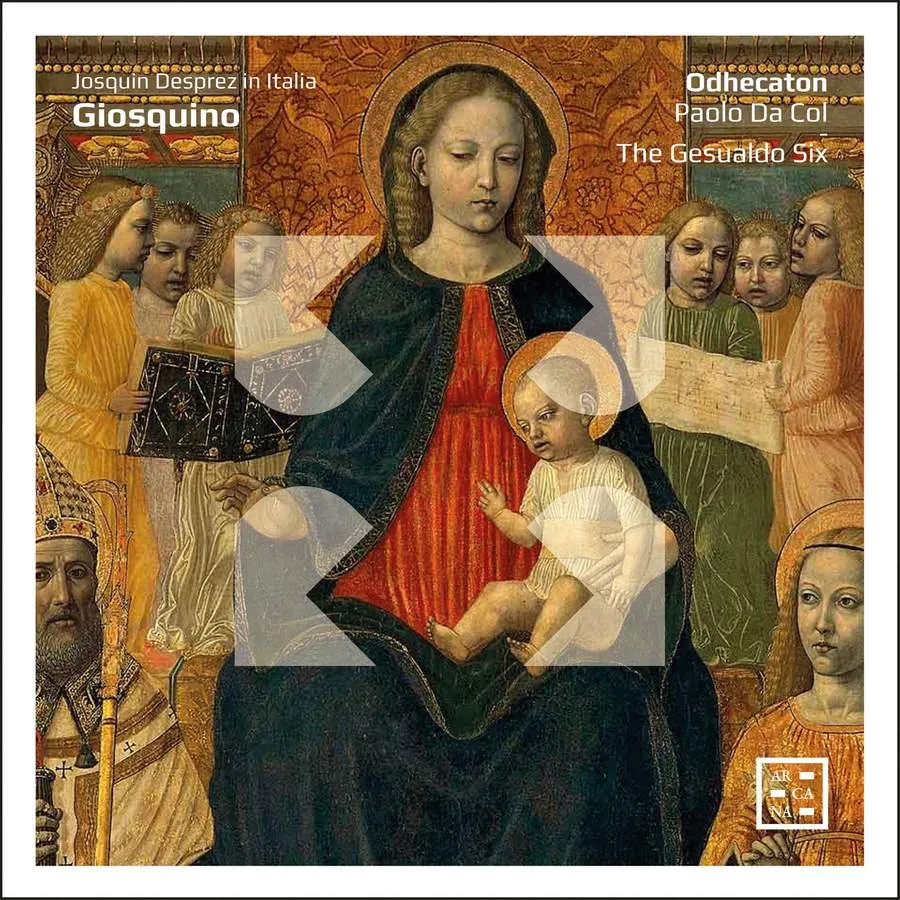
Josquin Desprez Gosquino: Josquin Desprez in Italia – Missa Hercules; Tu solus qui facis mirabilia; Virgo prudentissima; Praeter rerum seriem; Salve regina etc Odhecaton; The Gesualdo Six; La Pifarescha/Paolo Da Col Arcana A489 77:17 mins
Anyone expecting the sunlit virtuosity so often associated with Italy will have quite a surprise when they hear the works of high seriousness on this recording tracing Josquin’s ‘Italian journey’. Director Paolo Da Col contrasts the timbres of two vocal groups: the 15 male voices of Odhecaton whose richer sound is used for the cornerstone of the programme – the Mass Hercules Dux Ferrariae – and the more intimate sound of the male-voice consort, The Gesualdo Six, for several of the motets. Lacking the brightness of trebles or sopranos, the vocal sound is warm, dark, plangent – compared with the glassy textures of The Tallis Scholars (who’ve recently recorded Josquin’s complete works), this is a velvet shroud.
Col’s expressive direction of the Hercules Mass and the choir’s sable colours underscore the sense of pious sobriety that pervades this monumental work. Reflecting liturgical practice, a motet is sung between the Credo and the Sanctus: ‘Tu solus qui facis mirabilia’, whose first part is voiced with prayerful intensity to accompany the solemn Elevation of the Host. In the second part, the countertenors float quotations of Ockeghem’s song ‘D’ung aultre amer’ – to ravishing effect. Beautiful, too, is the trio of Marian motets: ‘O Virgo prudentissima’, whose vaporous lines sound almost ethereal; ‘Salve regina’ – hushed and fervent – and the five-voice ‘Inviolata, integra et casta’, which Col builds to a luminescent climax. In the richer, 12-part setting of the same motet, the recording highlights Josquin’s antiphonal effects and swirling polyphonic textures, bringing the programme to a rapturous conclusion.
Kate Bolton-Porciatti